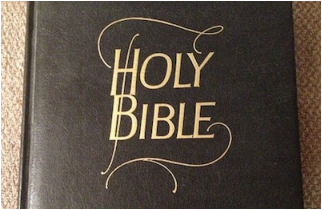|
Today’s Scripture covers a letter written to the Jews in captivity. Jeremiah Chapter 29 Lessons from the textThoughts of Peace Despite all the sins of Israel, God still has thoughts of peace towards His people (v. 11). God desires to bless us. He wants the best for us. Everything that He does, even judgment against us, is meant to purge us of sin and bring us closer to Him. God’s ultimate goal for the Jews and all of humanity is simple: live in peace with Him. Verse by Verse Commentary 1-2 Continuing in chronological order from chapter 28, this chapter details a letter sent to those who are in captivity. Since Hezekiah has been king for four years (28:1), the deported Jews have been in Babylon long enough to begin to wonder what they will do for themselves for the remainder of their captivity. This reveals that God wants man to have a clear understanding of His plan for his life. 3 This letter is endorsed by King Zedekiah. Despite the fact that Jeremiah has openly rebuked the king (Jer. 21:1-22:9), Zedekiah still wants God’s word to be delivered to those in need. 4-7 God gives instructions to the deported Jews in accordance with the same words which He spoke concerning them to the people who are left in Jerusalem: God has carried the captives to Babylon for their good (Jer. 24:5). This highlights God’s consistency. God lets the people know that since they will be there for a long time, they might as well settle down and live their lives in liberty. These verses demonstrate that the Jews were not treated as slaves but were free to function in Babylonian society just like an ordinary citizen. They are to be loyal to their new king for God has given all authority to Nebuchadnezzar to rule over the nations of the earth (Jer. 27:6). As part of this new society, as long as it prospers so shall they prosper; therefore God tells them to pray for the peace of their conquerors. Noteworthy is that Daniel reads this letter and the other writings of Jeremiah to give him direction for his time in Babylon (Dan. 9:2). This proclamation of peace may very well have contributed to Daniel’s unwavering loyalty to his position in Babylonian and Persian court (Dan. 5:11-12, 6:4). 8-9 Even though the false prophets have been exposed to be liars in that their prophecy of peace failed to come to pass while Jeremiah's prophecy of the captivity came to pass, they are so rebellious against God that they will still try to convince the people that they are the true prophets. God warns sternly against listening to such foolish people. 10 In addition to protecting the Jews in Babylon, when the seventy years of judgment are completed, God will fully restore their kingdom. The seventy years was determined by the seventy times Israel failed to observe the seventh-year Sabbath that required the land to rest from farming. As God provided double manna on the sixth day so that the Jews in the wilderness would not have to work on the seventh day, He promised to provide amply in the sixth year so that no one would have to sew seed in the seventh. This was also to provide for the poor who would be allowed to freely gather food. (Jer. 25:11, II Chro. 36:21, Lev. 25:3-7, Exo. 16:22-30) God is forcing these seventy year-long Sabbaths to be observed, and, at the end of their fulfillment, He will once again bless the land. The point is that God cannot bless something tainted by sin: it must first be cleansed and made righteous through obedience to His words. 11 One would expect God to take good care of His people. God will do just that by restoring the Jewish nation. Even though they have broken their end of the covenant with God, God will uphold His side of the covenant. 12-14 One is able to find God when one searches for Him with all of one’s heart. Likewise, when one sincerely prays to God, He will hear. 15-19 Despite all the warnings God has given the Jews, those not taken to Babylon in the first deportation refuse to listen to God. This reveals the stark contrast between how God views the repentant and the rebellious. God desires to bless and restore those who repent (the ones taken to Babylon which turn to Him with all of their heart) while He is forced to judge those who continue in their sin (those who have stayed behind.) If the remaining Jews would submit to Babylonian rule, they would be blessed in their land (Jer. 27:11). However, they reject this advice and rebel against God and Babylon. In response, God sends war, diseases, and famine according to His word (Jer. 27:8). 20-32 God now tells the Jews in captivity that there are false prophets among them. Ahab, Zedekiah (distinct from King Zedekiah), and Shemaiah have all been sending letters to Jerusalem giving false messages in the name of the Lord. Unfortunately, as verse 15 states, the Jews left in Jerusalem have believed the false prophets instead of Jeremiah. Those in captivity, however, are not believing the false prophets. God tells them what He is going to do to these three false prophets in order to strengthen their conviction that Jeremiah (and later Daniel) are the true representatives of God’s words. 21 As punishment for teaching rebellion against Babylon, God will allow Nebuchadnezzar to kill the false prophets. God’s divine protection is on His own; without Him one is vulnerable to physical and spiritual harm. The prophets will be slain before the Jews in captivity for two reasons. First, Nebuchadnezzar believes that killing the prophets in front of them will prove his superiority over God; that is, he believes he is proving that their God is not able to protect the people against him and therefore they should serve his god instead of their God. Second, God will use the event to prove that they are false prophets; since the words which Jeremiah speaks and not that these three speak will come to pass, Jeremiah is the true prophet. 22-23 The Jews in captivity are fully aware that Zedekiah and Ahab are false prophets. They will become so notorious for their sins that their names will be used in cursing. Noteworthy is that God Himself is a witness against sinners. 24-26 Shemaiah has been sending letters to Jerusalem on his own accord (in his own name) yet claims that he is declaring God's plans. He is trying to convince the people that God's true prophets are in Babylon and so anyone speaking as a prophet in Jerusalem is mad. He even tries to make Zephaniah feel like it is his priestly duty to suppress any prophets in Jerusalem. 27-28 Shemaiah repeats Jeremiah's message to the Jews in captivity as a witness against him that he is prophesying. He is wanting to remove Jeremiah because he is prophesying a different message that what he is wanting the people to believe. This makes Jeremiah a threat to the false prophet. 29 Zephaniah publicly reads the letter. He most likely does not accuse Jeremiah of speaking falsely because he remembers the recent events with Hananiah (Jer. 28:1-17). When two prophets dispute over who is called by God, the one whose words are fulfilled is the true prophet. 30-32 God immediately gives Jeremiah a response to Shemaiah. God spoke goodwill towards the captives, but now Shemaiah will have no part in that blessing. He will die in Babylon and have no male heirs, thus ending his line. The consequence for sinning against God is death (Rom. 6:23). ___________________ Thank you for your faithfulness in studying God’s word. Please comment below to share what you learned from today's lesson.
0 Comments
Leave a Reply. |
Devotional Categories
All
Archives
September 2023
|
|
Join my mailing list!
|
Thank you!You have successfully joined our subscriber list. |
|
© 2024 Melissa Beaty
|
